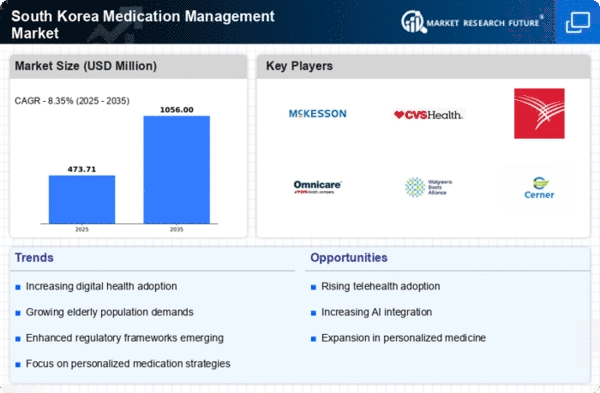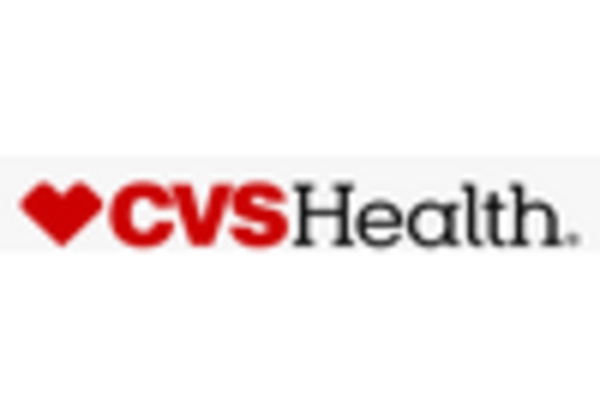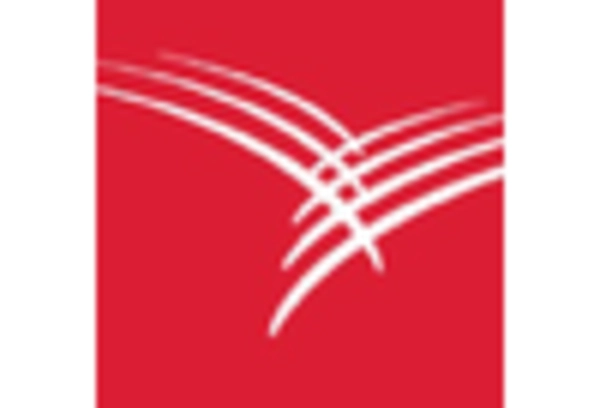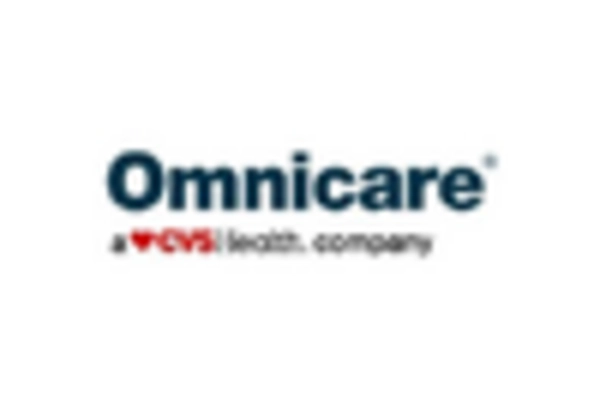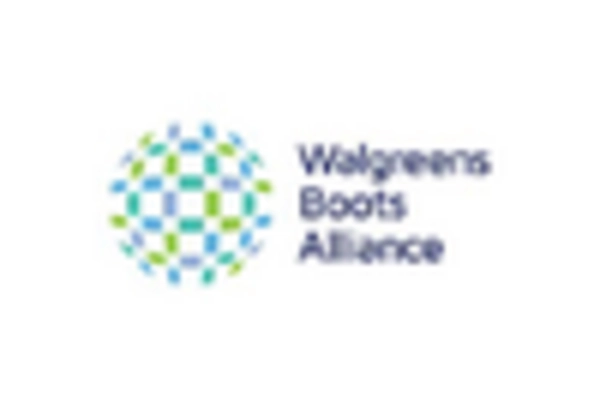Rising Awareness of Medication Safety
In South Korea, there is a growing awareness regarding medication safety, which is significantly influencing the medication management market. Patients and healthcare providers are increasingly recognizing the importance of proper medication management to prevent adverse drug events and ensure optimal therapeutic outcomes. Educational campaigns and initiatives aimed at promoting medication adherence and safety are gaining traction, leading to a more informed patient population. As a result, healthcare providers are adopting more robust medication management practices, including regular medication reviews and patient counseling. This heightened focus on safety is likely to drive demand for medication management solutions, as stakeholders seek to minimize risks associated with medication use and enhance overall patient care.
Regulatory Support and Policy Frameworks
The medication management market in South Korea is bolstered by supportive regulatory frameworks and government policies aimed at improving healthcare delivery. The South Korean government has implemented various initiatives to promote the safe and effective use of medications, including guidelines for medication therapy management. These policies encourage healthcare providers to adopt best practices in medication management, which is expected to enhance patient safety and treatment efficacy. Furthermore, the government is investing in healthcare infrastructure, with an estimated budget increase of 10% for healthcare services in 2025. This investment is likely to facilitate the development of advanced medication management systems, thereby driving growth in the market and ensuring that patients receive optimal care.
Technological Advancements in Healthcare
The medication management market in South Korea is experiencing a surge due to rapid technological advancements in healthcare. Innovations such as electronic health records (EHRs) and telemedicine platforms are enhancing the efficiency of medication management. These technologies facilitate better communication between healthcare providers and patients, leading to improved adherence to medication regimens. In 2025, it is estimated that the adoption of EHRs will reach approximately 85% among healthcare facilities, significantly impacting the medication management market. Furthermore, the integration of artificial intelligence (AI) in medication management systems is expected to streamline processes, reduce errors, and optimize patient outcomes. As a result, the medication management market is likely to expand, driven by these technological improvements that enhance patient care and operational efficiency.
Aging Population and Increased Healthcare Demand
The demographic shift of an aging population in South Korea is a critical driver for the medication management market. By 2025, it is projected that over 20% of the population will be aged 65 and older, leading to a higher prevalence of chronic diseases that require ongoing medication management. This demographic trend necessitates more comprehensive medication management solutions to ensure that elderly patients receive appropriate care. The increasing demand for personalized medication plans and monitoring services is likely to propel the market forward. Additionally, healthcare providers are focusing on developing tailored medication management strategies to address the unique needs of older adults, thereby enhancing the overall effectiveness of treatment and improving health outcomes in the medication management market.
Integration of Pharmacogenomics in Treatment Plans
The integration of pharmacogenomics into treatment plans emerges as a pivotal driver for the medication management market in South Korea. By tailoring medication regimens based on individual genetic profiles, healthcare providers can optimize therapeutic outcomes and minimize adverse effects. This personalized approach is gaining traction, particularly in the management of chronic diseases, where medication efficacy can vary significantly among patients. As of 2025, it is anticipated that approximately 30% of healthcare providers will incorporate pharmacogenomic testing into their medication management practices. This shift towards personalized medicine is likely to enhance patient satisfaction and adherence, thereby propelling growth in the medication management market as stakeholders recognize the value of individualized treatment strategies.


